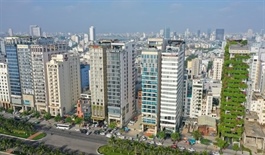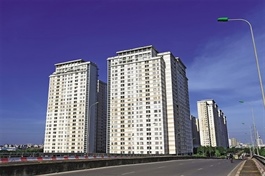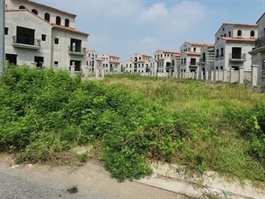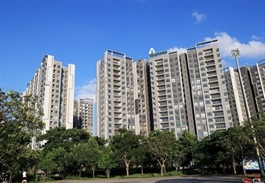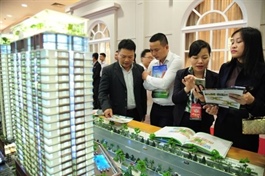Market yet to align with new land and housing legislation
Market yet to align with new land and housing legislation
After more than a month of implementation, the new laws on land, housing, and real estate business still face significant obstacles in terms of land price table adjustments and the verification of housing status and income conditions.

According to Nguyen Van Dinh, chairman of the Vietnam Association of Realtors, delays in adjusting land price tables in localities pose potential risks to the real estate market.
“Previously, Decree No.71/2024/ND-CP, issued in April, allowed the government to remove the requirement for hiring consultants to determine land prices, transitioning to using a K coefficient multiplied by the city’s land price table. Therefore, some localities using outdated land price tables as the starting point for land auctions have resulted in significant discrepancies between starting prices and actual auction results, leading to price volatility and abnormal fluctuations. This could also result in losses for the state budget,” Dinh said.
“On the other hand, some localities have sharply increased their land price tables, creating a significant gap compared to the previous tables, which could lead to resistance from affected groups such as residents and land-using businesses, especially when fulfilling financial obligations under the Land Law 2024,” he added.
Dinh also said that delays in updating land price decisions have left thousands of land use change, transfer, and certificate issuance applications pending, as tax authorities await new price tables. The lack of clear guidance from tax authorities is a primary cause of delays in implementing social housing projects in many areas.
Additionally, there are issues with issuing certificates of land use rights and asset ownership for undocumented land, a positive change introduced in the land law, due to changes in the authorities responsible for land certificates.
Under the new law, households and individuals using land without legal documentation, but not in violation of land laws or cases of unauthorised land allocation, are eligible for land use certificates. The responsibility for handling applications has shifted from the land registration office to the district-level department of natural resources and environment.
However, as these departments have not yet received instructions from central and provincial authorities or updated their databases, many first-time land use certificate applications have been halted.
Nguyen Thac Cuong, deputy director general of Mai Viet Land, added that Decree No.100/2024/ND-CP also needs attention.
The decree, which provides details on the Housing Law’s provisions for social housing development and management, stipulates that within seven days, land registration offices or branches must verify that registrants do not own homes and are not listed in local land use records. In the same timeframe, local authorities must verify income conditions for applicants to register for social housing purchases or rentals.
“Now, many localities are still facing difficulties verifying housing status and income conditions, as the responsible legal entities have not been provided with proper guidelines,” Cuong said.
Another issue is that, under current regulations, the State Bank of Vietnam’s branch only processes social housing loan applications once a purchase contract is in place. “However, when applicants complete contracts and approach the bank for loans, they are often told there is no funding available, as it has not been allocated. When the bank receives the funds, it will process the applications, but there is no set timeline for this,” Cuong added.
Meanwhile, senior financial expert Nguyen Tri Hieu pointed out that legal issues could limit the sector’s appeal to foreign direct investment (FDI). “Foreign investors often demand a clear and stable legal environment. If land laws negatively affect the market, real estate projects may struggle to pull in FDI due to concerns over property rights and complex procedures,” Hieu warned.
This is especially crucial as real estate continues to hold the second-highest position after manufacturing, with a total investment of over $3.36 billion, accounting for nearly 16.4 per cent of total registered capital, a 77.6 per cent increase on-year, according to data from the General Statistics Office for the first eight months of the year.
When including newly registered and adjusted capital from previously approved projects, FDI in real estate business activities now totals $2.55 billion, accounting for 14.4 per cent.







